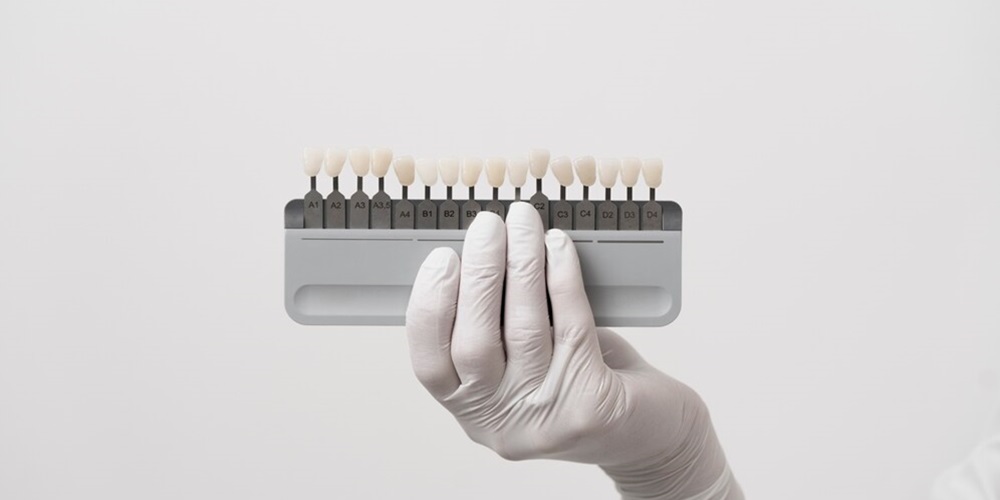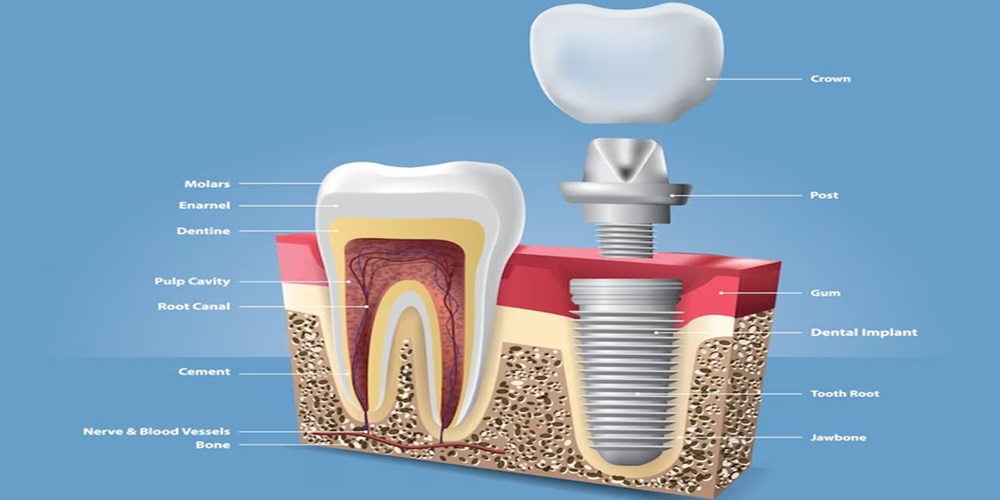Home » Dental Implants for Full Mouth Restoration: What You Need to Know?

Millions find it tough to munch, chat, and grin with assurance when their teeth have gone missing. Dental implants however, are stepping up as a full-package fix for those who’ve waved goodbye to a majority, if not all, of their pearly whites. Top-notch tooth-fixing methods are hooking up patients with fixed chompers that are a spitting image of the real deal in both appearance and sensation.
Full arch implants get set to give a person back their whole grin. The latest implant tech teams up with tailor-made fake teeth to make these full arch implants. They return the ability to chew and the prettiness to one’s grin. The article chats about everything in the full-mouth makeover journey—from the first meet-up to the aftercare, and explains the way this game-changing tooth fix does its magic.

Full dental implants offer a complete method to substitute all missing teeth. Surgeons anchor titanium posts into the jawbone during the process serving as roots for real teeth. A solid lasting base comes from these implants, and the fake teeth you get will seem, act, and be used just like the real deal.
A full set of replacement teeth gets strong support from titanium fixtures that dental pros put deep into the jawbone during full mouth restoration with dental implants. These ain’t your normal dentures which just sit on top of the gums. The cool thing is, these titanium pieces will eventually become one with the jawbone through a process called osseointegration, which means those new chompers will have a super sturdy base. By keeping the jawbone and the person’s face looking good, this type of dental fix makes sure you can keep munching away like normal.
When it comes to picking full dental implants dental patients have a bunch of choices to line up with what they need:
If your real teeth are a thing of the past and you’re fighting fit, you could be a prime candidate for a full dental implants. The main things to look into include:
Your jawbone needs to have enough density for implant support. If it’s necessary, bone grafting might do the trick. Your gums gotta be in good shape, free from any gum disease, to ensure solid integration with the implants. You’ve also gotta commit to looking after your teeth and hitting up your dentist on the regular.
Stuff like diabetes or weak bones doesn’t mean you’re out of the game right off the bat.
These conditions just need careful management before the procedure. Your dentist will review your medical history and complete an examination to check if this treatment suits you.
A complete dental restoration experience starts with a well-laid-out process that will give optimal results for each patient. Patients can better prepare for your transformation when they understand each phase of the full dental implants procedure.

The dental team begins with a detailed evaluation that includes 3D scans and X-rays to assess bone structure and density. These results help specialists create a tailored treatment plan. The plan outlines required implant numbers, their exact placement locations and any necessary preparatory procedures like bone grafting or tooth extractions.
The dental surgeon places titanium implant posts with precision into predetermined positions in the jawbone. Local anesthesia makes this procedure comfortable for patients. Key considerations shape the success of the surgery:
The healing process starts when bone naturally fuses with the implant posts. Osseointegration is a significant phase that typically takes 3-6 months. Patients wear temporary prosthetics and must follow specific dietary guidelines to ensure proper healing during this time.
The dental team starts the final phase after confirming successful osseointegration. Small connectors called abutments attach to the implants and create strong anchors. The dentist carefully places permanent prosthetic teeth that blend perfectly with the patient’s natural tooth color and facial features to complete the full mouth restoration process.
Patients and their dental team collaborate closely to achieve the best possible esthetic results. The healing phase requires regular check-ups that help the team monitor recovery and quickly resolve any issues that arise.
Full dental implants revolutionize patient care way beyond simple tooth replacement. These advanced procedures provide detailed improvements to oral function and enhance the patient’s quality of life.
Dental implants for entire mouth restore complete oral functionality that lets you enjoy activities you may have avoided due to missing teeth. Implant-supported restorations provide these benefits:
Dental implants offer one of the most important advantages by knowing how to preserve jawbone health. The titanium posts work just like natural tooth roots and stimulate the jawbone. This stimulation stops bone loss and keeps the face structurally intact. Research shows that implant-helped restorations promote better bone density and maintain the alveolar ridge naturally.
Dental implants for entire mouth deliver superior esthetic results with custom designs and exact color matches. Dental experts craft prosthetic teeth that complement the patient’s facial features and desired look. The final restorations blend naturally with existing oral structures, and most people can’t tell them apart from real teeth.
Dental implants for entire mouth offer a permanent solution that outlasts traditional dentures, which need replacement every 5-7 years. These implants can serve you throughout your lifetime with proper care. The implant framework bonds naturally with your jawbone and creates remarkable strength. The prosthetic teeth resist decay effectively. Regular dental hygiene and professional check-ups ensure your implants stay healthy and functional for years to come.

Dental implants need proper care and attention to last longer and work better. Regular maintenance protects your most important investment in full mouth restoration and prevents potential risks.
You need a complete approach with special tools and techniques to clean your full-mouth dental implants properly. Here are the essential cleaning tools you’ll need:
Clean your implants daily with these steps:
Professional monitoring is significant to maintain full mouth implants. Patients need dental visits every six months to get complete examinations and professional cleanings. Dental professionals check implant stability and examine surrounding tissues during these appointments. They use specialized instruments designed for implant care to remove accumulated plaque or tartar.
Bad habits damage the integrity of full mouth dental implants. Nail-biting and aggressive tooth brushing harm both implants and surrounding tissues. Your teeth should never serve as tools to open packages or bottles, and chewing ice must stop. Patients with teeth grinding should ask their dentist about a custom nightguard that protects their complete dental restoration.
Good hydration and limited sugar intake help your implant’s health. Smokers must quit because tobacco substantially increases implant complications and failure rates. Regular meal schedules work better than frequent snacking throughout the day because constant pressure affects implant stability.

Dental implants for entire mouth are a breakthrough in complete dental restoration that gives patients a lasting solution similar to natural teeth. These detailed treatments bring back complete oral function and protect bone structure and facial features. Patients’ lives change dramatically with modern implant technology and custom prosthetics. They can speak better, chew more effectively, and feel confident about their smile again.
The long-term success of dental implants for entire mouth depends on good maintenance and regular dental visits. Patients who follow proper daily cleaning routines and keep their scheduled checkups will get many years of reliable service from their complete dental restoration. This investment gives patients both restored dental function and a natural-looking smile that can last a lifetime with proper care.